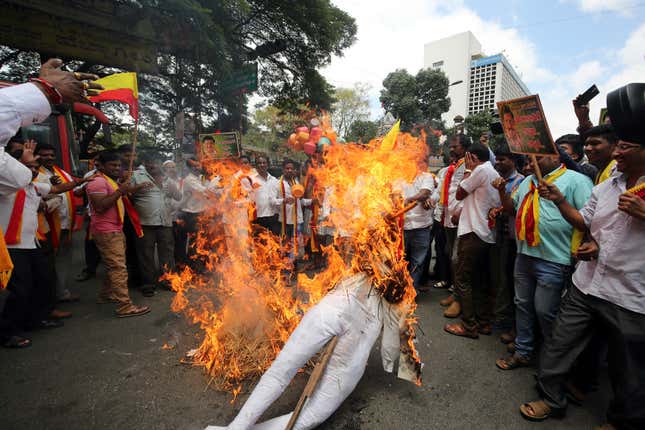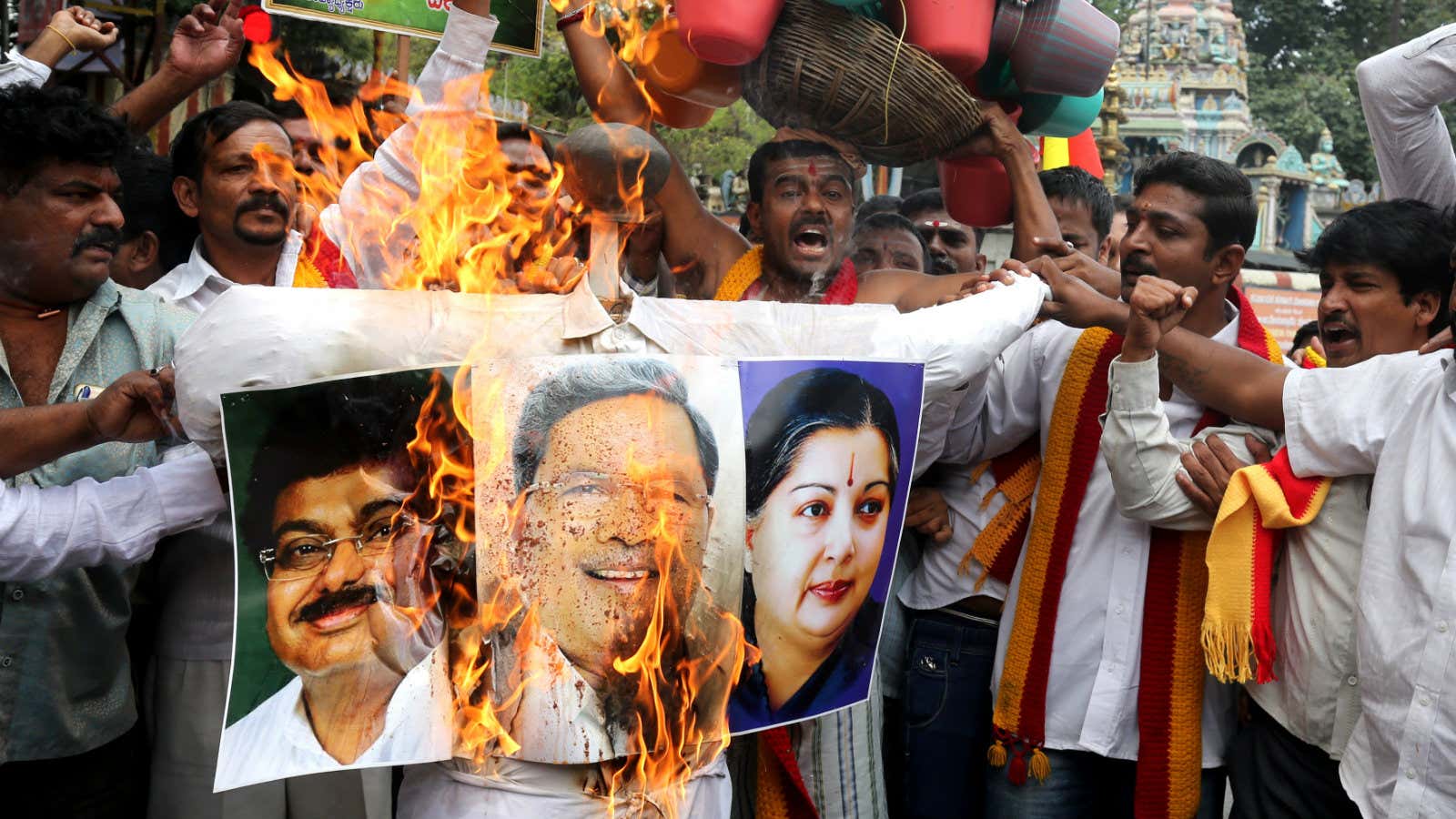India’s Silicon Valley has come to a standstill due to water politics.
Protesters in Bengaluru took to the streets on Sept. 9 protesting against the Indian supreme court’s order asking the state of Karnataka to release water from the Cauvery river to neighboring Tamil Nadu.
Offices of around 400 multinational companies in the city, home to the India units of global tech firms such as Microsoft, Google and IBM, remained shut, as did government schools and colleges. The Bengaluru Metro is also not functioning, leaving hundreds of citizens stranded across the city. Pharmacies, banks, and restaurants, too, are shut.

The police are on a red alert and Karnataka has called for additional forces from Kerala, Andhra Pradesh, and Maharashtra to manage law and order, The Hindu newspaper reported.
Karnataka has been asked to release 15,000 cusecs of water from Cauvery river to Tamil Nadu each day for 10 days starting Sept. 6 to irrigate the summer crop. Karnataka, which solely depends on the Cauvery to supply drinking water to Bengaluru’s 10 million residents, has said it doesn’t have enough water. “The level of water in four of the state’s reservoirs on the Cauvery is lower than usual,” NDTV reported.
Water wars between Karnataka and Tamil Nadu aren’t new. The two states have been fighting over Cauvery water for more than a century. The 765 km-long river originates at Talakaveri in Karnataka’s Kodagu district, flows south-west, and empties into the Bay of Bengal at Poompuhar in Tamil Nadu.
In 1990, the supreme court had asked the central government to set up a Cauvery Waters Tribunal to look into the problem.
Almost 16 years after it was set up, the tribunal announced its final order in 2007. It allocated 419 thousand million cubic feet (tmc ft) of water to Tamil Nadu and 270 tmc ft to Karnataka. Kerala was given 30 tmc ft and Puducherry got 7 tmc ft.
This allocation was based on the conclusion that the total water in Cauvery basin stood at 740 tmc ft. However, both Tamil Nadu and Karnataka filed a review petition before the tribunal.
By 2012, India’s then prime minister, Manmohan Singh, who was also chairman of the Cauvery River Authority (CRA), asked the Karnataka government to release 9,000 cusecs of water daily to Tamil Nadu. CRA is the body that implements the tribunal’s decisions.
Karnataka, however, did not release the water. Eventually, the supreme court had to intervene to implement CRA’s order. Even after that, Karnataka frequently disrupted the release, forcing Tamil Nadu to file another case.
This century-old row has not only divided the protesters on the street but even prominent business persons. Some of India’s corporate icons took to social media on Sept. 09 to show solidarity with pro-Karnataka protestors.




